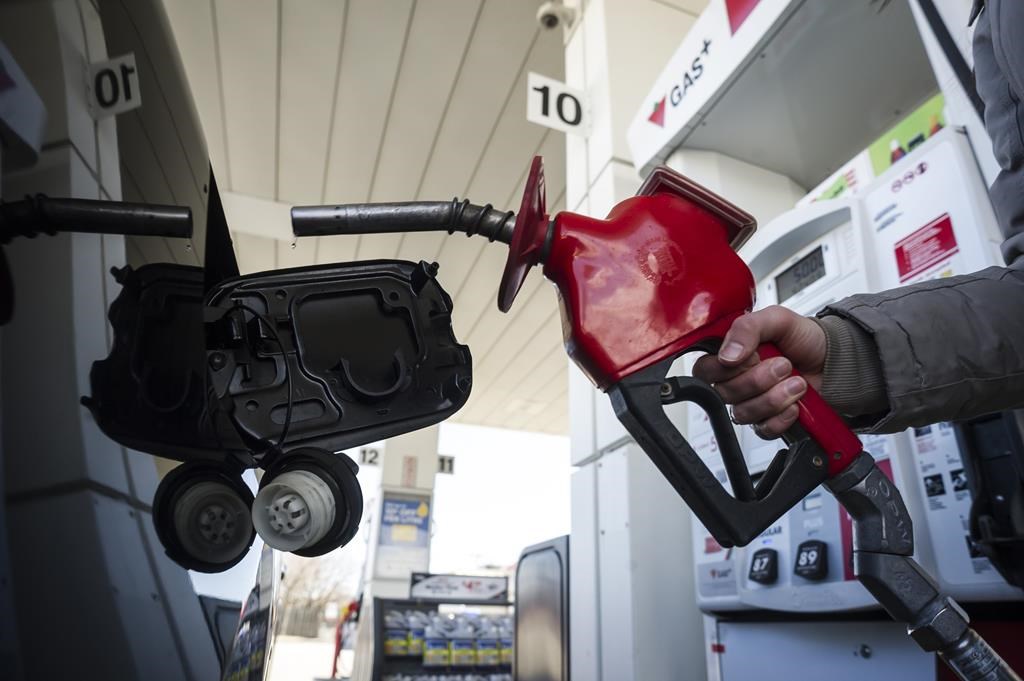Canada’s annual inflation rate picked up its pace in April — a month that saw stronger price pressures on gasoline in provinces that have new carbon-pricing systems. Statistics Canada’s consumer price index increased two per cent year-over-year last month, up from its reading of 1.9 per cent in March and 1.5 per cent in February.

The April reading, which matched the expectations of economists, brings the measure in line with the Bank of Canada’s ideal inflation target of two per cent — a neutral position that doesn’t put immediate pressure on governor Stephen Poloz to adjust interest rates.
READ MORE: Carbon tax bumps up gas prices in 4 provinces — will it change consumer behaviour?
For Canadians, that would mean “less of an increase in debt service costs than was seen last year,” RBC economist Joseph Nye said in a note to clients.
Consumers paid more for mortgage borrowing costs, fresh vegetables and auto sales last month, while they saw lower price tags for hotels, kids’ clothing and digital equipment.
WATCH: Liberals argue carbon tax has raised gas only 1 cent on BC’s $1.80 price per litre

The report says the six provinces where carbon levies were introduced or increased in April saw larger month-over-month rise in prices at the pump. The provinces include New Brunswick, Ontario, Manitoba and Saskatchewan, which were mandated to follow the federal carbon-pricing system, as well as Prince Edward Island and B.C., which made voluntary carbon-levy changes.
READ MORE: Saskatchewan loses carbon tax challenge — what it means for the rest of Canada
But in the four provinces where the federal carbon tax took effect, “the average household gets that money back when they file their taxes,” Nye noted.
— With files from Global News reporter Erica Alini
- RateMDs faces certified class-action lawsuit over alleged breach of privacy
- Power adapters sold on Amazon may cause electric shock, Health Canada warns
- Renters so far more ‘vulnerable’ than homeowners amid higher interest rates. Why?
- Competition Bureau to set sights on airline sector for latest market study



Comments